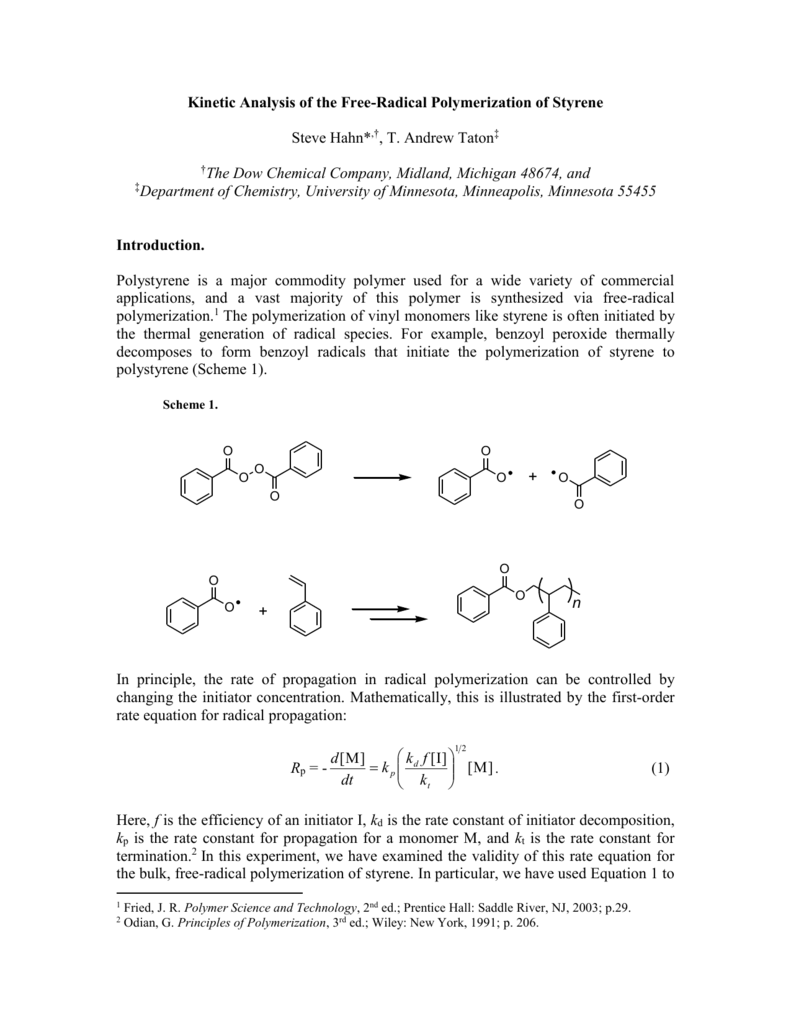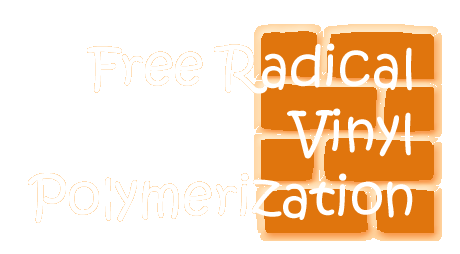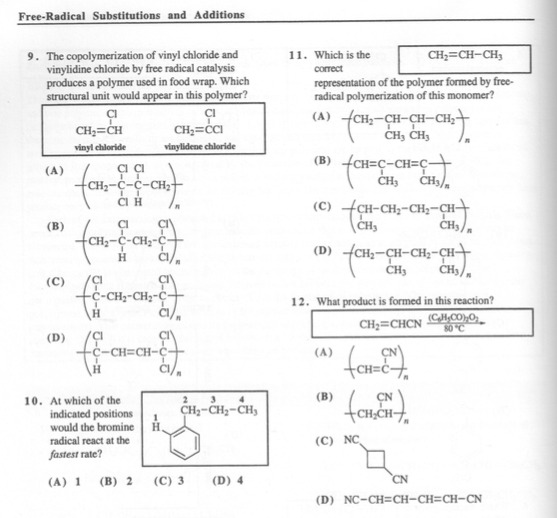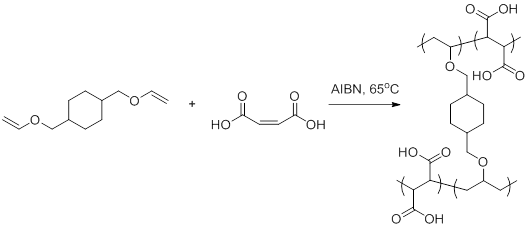Since this can be initiated by traces of oxygen or other minor impurities pure samples of these compounds are often stabilized by small amounts of radical inhibitors to avoid unwanted reaction.
Free radical polymerization of vinyl monomers.
In situ free radical polymerization of compatible vinyl monomers in a room.
Free radical polymerization frp is a type of chain growth polymerization where the polymer is formed by successive addition of building blocks vinyl monomers to a propagating radical chain 1 2.
Following its generation the initiating free radical adds nonradical monomer units thereby growing the polymer chain.
Free radicals can be formed by a number of different mechanisms usually involving separate initiator molecules.
The relatively non specific nature of the free radicals towards vinyl and other unsaturated monomers makes frp one of the most versatile polymerization methods.
Free radical polymerization of vinyl monomers.
Free radical polymerization consists of three fundamental steps initiation propagation and termination.
It is used to make polymers from vinyl monomers that is from small molecules containing carbon carbon double bonds.
Virtually all of the monomers described above are subject to radical polymerization.
Polymers made by free radical polymerization include polystyrene.
Free radical polymerization frp is one of the most important synthesis routes for obtaining vinyl polymers.
Here we will mainly focus on raft polymerization of nonconjugated n vinyl monomers and their applications for the controlled synthesis of functional polymers having various architectures such as block and graft copolymers alternating and gradient copolymers star and branched polymers and hybrids other controlled radical polymerizations such as nmp atrp set lrp organoheteroatom.
The process can be initiated in a number of ways but most commonly involves the presence of species which decompose into radicals known as.
To realize polymer electrolytes with high ionic conductivity we exploited the high ionic conductivity of an ionic liquid.
It is used to make polymers from vinyl monomers.
One of the most common and useful reactions for making polymers is free radical polymerization.
Mechanism of free radical polymerization.
That is from small molecules containing carbon carbon double bonds.
Propagation is the rapid and progressive addition of monomers to the growing polymer chain without a change of the active center.
The free radical then reacts with a vinyl monomer that is.










